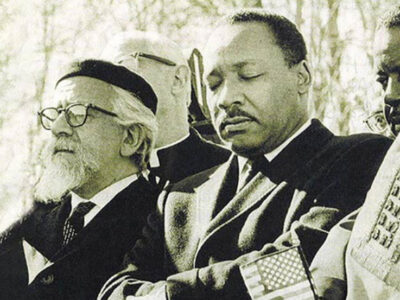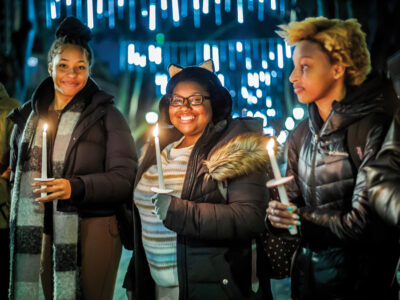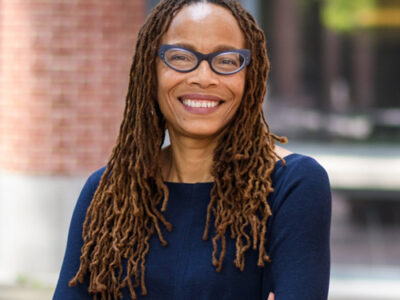
Cornel West on the misunderstood icon and “imperfect,” “magnificent” man.
“I think we have to begin with the notion that Martin Luther King Jr. is not an isolated voice, an icon in a museum; he’s a wave in an ocean. That he is part and parcel of the tradition of a great people—a world-historical people whose gifts to the world are an unbelievable ‘caravan of love,’ in the language of the Isley Brothers, in the face of 400 years of chronic hatred,” said philosopher and activist Cornel West near the start of the 2021 Reverend Dr. Martin Luther King Jr. Lecture in Social Justice.
Cohosted by the Center for Africana Studies and the Annenberg School for Communication, the lecture was the 20th in the annual series at the University—and the first to be held virtually.
In a wide-ranging conversation with Center director and Penn English professor Margo Crawford, the Edmund J. and Louise W. Kahn Professor of Faculty Excellence, West—a philosophy professor at Harvard and the author of 20 books, most recently Black Prophetic Fire—touched on King’s place in the “cacophony of voices” making up the movement for civil rights and social and economic justice. West also delved into King’s relationship with Malcolm X, and the centrality of Black popular culture as a spiritual and democratic force, among other topics.
In her last question, Crawford asked West to comment on King’s 1966 statement that “a riot is the language of the unheard” in the context of the mass demonstrations that followed the killing of George Floyd last summer.
“I applaud the marvelous militancy of the largest expression of protests in the history of the United States,” which then spread around the globe, West said. “But the real challenge is that we can’t view it in an isolated way. There’s a connection between police power, Pentagon power, Wall Street power,” he continued, drawing a comparison to King’s critique of militarism during the US war in Vietnam.
West argued that King was profoundly misunderstood even during his own lifetime, pointing out that people now forget that the majority of Americans and even almost half of Black people disapproved of him two months before he died. “Black folk was saying, ‘Why you talking about foreign policy? We just talking about civil rights. Why you talking about the poor? We don’t need to talk about white poor, we don’t need to talk about brown poor, we’re talking about Black people.’
“And Martin said, ‘Y’all never understood me: see, I was never just a civil rights activist. I was never just a patriot. I am a Christian preacher who’s called to follow hesed, pursue justice, and tell the truth that affects every corner of the globe, beginning with Black people in the United States. … But that love for Black people didn’t stop me from loving white people, from loving Jewish people, from loving Palestinian people, from loving Arab people, from loving Asians, indigenous peoples, and so forth.’
“That’s the Love Supreme that’s always too much for the ears of the elites—too much for them to really listen to and understand the challenge, the fundamental challenge, to the powers that be. And that’s why we shall never ever forget our brother Martin and all of the others who gave so much in their own imperfect and fallible but magnificent and, I would say, sublime ways.” —JP
The entire session can be viewed at the Center for Africana Studies’ homepage or YouTube channel.




